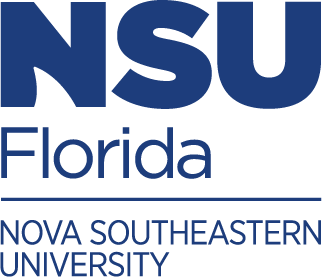Newswise — FORT LAUDERDALE/DAVIE, Fla. – It’s good to have friends.
Most humans have experienced social anxiety on some level during their lives. We all know the feeling – we show up to a party thinking it is going to be chock full of friends, only to find nearly all total strangers. While we typically attribute the long-lasting bonds of social familiarity to complex thinkers like humans, growing evidence indicates that we underestimate the importance of friendship networks in seemingly “simple” animals, like fish, and its importance for survival in the wild. To better understand how familiarity impacts social fishes, a group of research scientists studied this idea using schooling coral reef fish.
“We studied how the presence of ‘friends’ versus ‘strangers’ affected how fish responded to a predator threat,” said lead author Lauren Nadler, Ph.D., an assistant professor in Nova Southeastern University’s (NSU) Halmos College of Arts and Sciences. “The presence of ‘strangers’ seemed to distract fish, making them react more slowly and greatly increasing the chance that they would become lunch for a hungry predator when in the wrong social scene.”
You can find the study published online in the journal Communications Biology.
Nadler and her colleagues believe that their results come down to trust. In social animals living in the wild, individuals rely on their buddies to alert them if a predator is lurking, but they need to balance the risk of being eaten against the wasted energy of reacting to inaccurate information. So, individuals will alter their sensitivity to social information based on the level of familiarity in the group, and hence trust in the information’s accuracy.
“Trust among individuals is critical. This is true for humans as well as many other species, including fishes,” said co-author Jacob Johansen, Ph.D., assistant professor at University of Hawaii Manoa. “Our research in fishes show that when accurate information transfer breaks down, so too does the chance of survival for the individual and the group as a whole.”
Further, the researchers’ results seemed to be driven by a combination of greater vigilance by the first fish to detect the predator, as well as more effective information sharing among neighboring fish.
“Our work shows that readiness to react to a threat depends on who is around you, if you are a fish,” said Dr. Paolo Domenici, Research Director with the Institute of Biophysics at the Italian National Research Council “If you are in an unfamiliar social environment, this is already something you need to pay attention to. If you are surrounded by familiar individuals, then you will be able to pay attention to any external threat more readily.”
As escape performance underpins survival from predator attacks, these results help us to understand why animals have evolved to prefer associating with “friends” rather than “strangers”, due to the implications for both individual and group-level survival in the wild.
“Friendship networks matter, both for humans and for less evolved taxa like fishes,” said Mark McCormick, Ph.D., of the ARC Centre of Excellence for Coral Reef Studies. “The more you can rely on your friends, the easier and more fulfilling your life will be.”
Be sure to sign up for NSU’s RSS feed so you don’t miss any of our news releases, guest editorials and other announcements. Please sign up HERE. You can also follow us on Twitter @NSUNews.
###
About Nova Southeastern University (NSU): At NSU, students don’t just get an education, they get the competitive edge they need for real careers, real contributions and real life. A dynamic, private research university, NSU is providing high-quality educational and research programs at the undergraduate, graduate, and professional degree levels. Established in 1964, the university includes 15 colleges, the 215,000-square-foot Center for Collaborative Research, the private JK-12 grade University School, the world-class NSU Art Museum Fort Lauderdale, and the Alvin Sherman Library, Research and Information Technology Center, one of Florida’s largest public libraries. NSU students learn at our campuses in Fort Lauderdale, Fort Myers, Jacksonville, Miami, Miramar, Orlando, Palm Beach, and Tampa, Florida, as well as San Juan, Puerto Rico, and online globally. With nearly 200,000 alumni across the globe, the reach of the NSU community is worldwide. Classified as having “high research activity” by the Carnegie Foundation for the Advancement of Teaching, NSU is one of only 59 universities nationwide to also be awarded Carnegie’s Community Engagement Classification, and is also the largest private institution in the United States that meets the U.S. Department of Education’s criteria as a Hispanic-serving Institution. Please visit www.nova.edu for more information.
